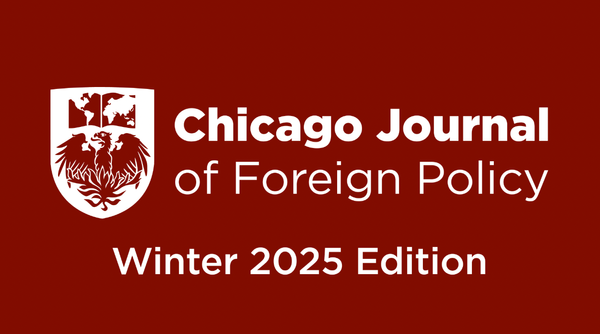
CJFP Winter 2025 Journal
The editorial board is pleased to present the Winter 2025 issue of the Chicago Journal of Foreign Policy. It can be found here.

The editorial board is pleased to present the Winter 2025 issue of the Chicago Journal of Foreign Policy. It can be found here.

Alex Jung, University of Chicago Indigenous rights have often been at the center of contention in several states living in the post-colonial era. Whilst the issue of colonial identities appeared most relevant in the 19th and early 20th century, with 1,500 languages on the brink of extinction by the

By Arjan Sandhu, University of Chicago Introduction Hezbollah is a Lebanese Shi’a political party and paramilitary group that was formed in 1982 in response to the Israeli invasion of Lebanon.[1] The group was likely behind the 1983 truck bomb attack on the U.S. Marine Corps barracks at
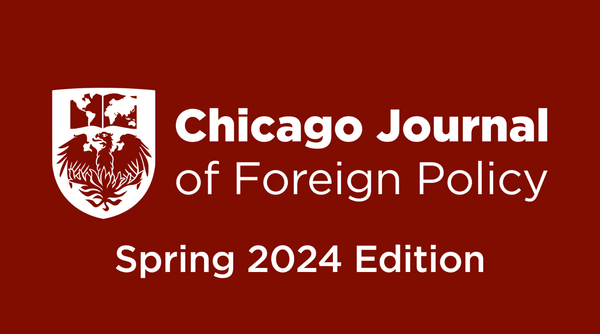
The editorial board is pleased to present the Spring/Summer 2024 issue of the Chicago Journal of Foreign Policy. It can be found here.

By Andrew Bruner, Taylor University On November 30, 2022, Silicon Valley’s OpenAI released Chat-GPT, and within its first five days, the AI chatbot hit over one million users.[1] Not even two years later, the world is still grappling with the massive impact that artificial technologies as a whole

By Shikhar Sehgal, University of Chicago "Oceania is vast, Oceania is expanding. Oceania is hospitable and generous, Oceania is humanity rising from the depths of brine and regions of fire deeper still, Oceania is us. We are the sea, we are the ocean, we must wake up to this
By Francisco Gutierrez, University of Chicago During the second half of the 20th century, European right-wing ideology was characterized in fairly simple terms, with right-wing political parties serving as the line of defense against global communism and the USSR. Perhaps the biggest proponents of the capitalist world order, these parties
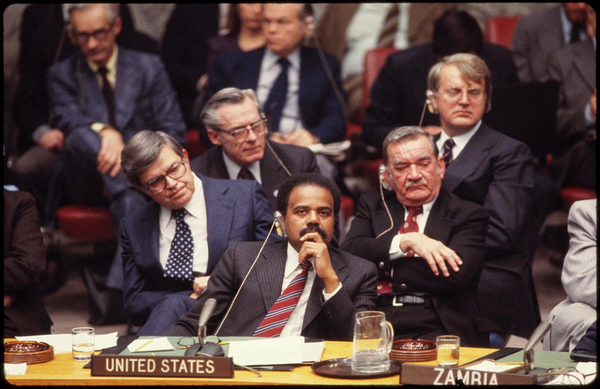
By Kenzo Hannah, University of Chicago Germany is currently pushing the European Union to designate the Islamic Revolutionary Guard Corps (IRGC) a Foreign Terrorist Organization (FTO).[1] The European Union would join the U.S. and several other nations in classifying the organization as such. This article will establish Iranian

By Maria Poltorykhina, University of Chicago Tajikistan and Iran potential alliance is the alliance of the poorest country in Central Asia and of the most sanctioned country in the world. However, both these countries belong to one of the most ancient and influential world civilizations, Persia. As Iran's

By Megan Wei, University of Chicago The South China Sea has long been a flashpoint for regional tension, with competing territorial claims at the heart of a complex and evolving geopolitical struggle. Stretching from the Strait of Malacca to the Strait of Taiwan, this vital waterway includes hundreds of islands,

By Daniel Maresca, University of Chicago Quantum computing—a revolutionary technology positioned to benefit society through streamlined problem-solving, advanced simulations, and innovations in fields like healthcare and materials science—presents more risks than benefits when examined from a national security perspective.[1] The unparalleled capabilities threaten the dismantling of existing

By Kacey Archer, University of Chicago Humanitarian intervention is often caught between two frequently conflicting ideals: universal human rights and a society’s entitlement to cultural autonomy. In some cases, the rights of an individual and the rights of a community appear to be so deeply incompatible that addressing inhumane
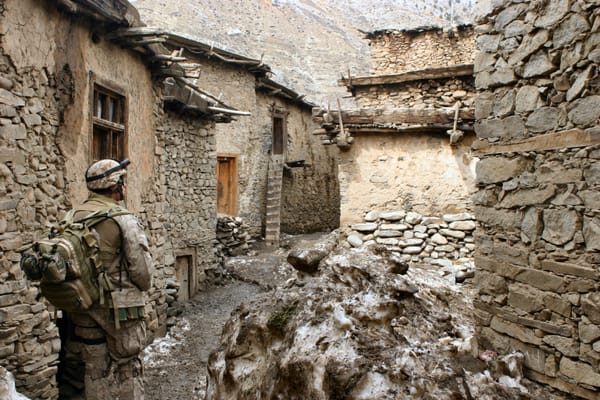
By Omar Abdelrahman, University of Texas at Austin On August 15, Americans watched in horror as Taliban pickup trucks covered in white flags flooded the streets of Kabul, marking the tragic end of America’s longest war. The eyes of the world fixated on the heartbreaking scenes of Afghans hanging
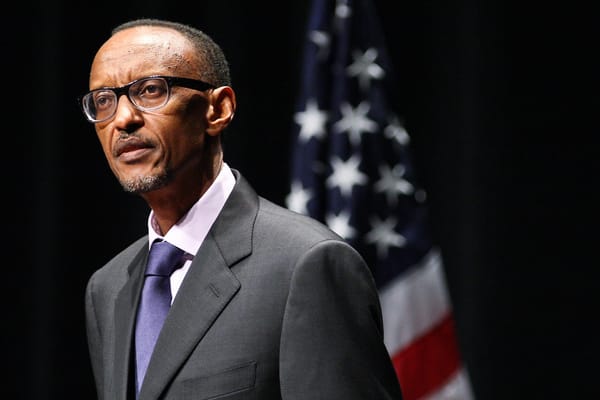
By Tom Smee, University of Chicago Arsenal Football Club, one of the world’s biggest sports teams, has retained the same jersey sponsor since 2018: “Visit Rwanda”. This unique sponsorship is symbolic of Rwanda’s decades-long push to rapidly grow the economy through tourism and other non-resource-intensive sectors, especially in
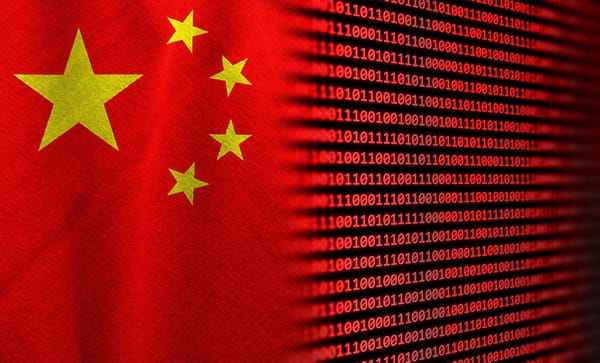
By Seth Poling, University of Chicago Introduction Cyberspace has become embedded in the fabric of large swaths of the globe. Individual actors, groups, and governments use cyberspace to store, process, and transmit billions of data points daily. Some of these data are more valuable than others. Consider a firm’s

By Sam Hagood, University of Chicago Over a thousand days have passed since Putin sent his first troops into Ukraine. The Ukrainian conflict has since claimed the lives of millions; its hunger for materiel and men draws in superpowers and neighbors alike. Allies have shipped ammunition, adversaries have cried foul

By Henry Jacobs, University of Chicago In 2017, then 36-year-old mayor of San Salvador, Nayib Bukele threw an apple at a member of his former party in a closed-door meeting. He was expelled from the party, only to create his own party, Nuevas Ideas, and win the 2019 El Salvador

By Sam Fisher, University of Chicago It has been a little over a year since Germany’s Green Party killed all of their country’s nuclear energy, and keeping that promise may kill their electoral future too. Germany’s Green Party has been fighting for the end of nuclear energy
The editorial board is pleased to present the Winter 2024 issue of the Chicago Journal of Foreign Policy. This issue, our first in over a year, would not have been possible without the hard work of our staff at the University, and contributors both at the University and across the
By Michael F. Duggan, Ph.D. This article appeared in CJFP's Winter 2024 publication. Introduction Successful imperialism wins wealth. Yet, historically, successful empires such as Persia, Rome, Byzantium, Turkey, Spain, Portugal, France, Britain, have not remained rich. Indeed, it seems to be the fate of empires to become
By Andrew Gary, University of North Carolina This article appeared in CJFP's Winter 2024 publication. Background Several years prior to the Second World War it had been theorized that through the destruction of civilian cities, air power would be able to win a war on its own. Italian
By Hannah Pennington This article appeared in CJFP's Winter 2024 publication. Abstract This research examines how Official Development Assistance (ODA) increases Al- Qaeda in the Arabian Peninsula (AQAP) terrorism in Yemen from 2010 to 2020. This project adds to the discourse about how foreign aid and development assistance
By Isa Rosario-Blake, University of Chicago This article appeared in CJFP's Winter 2024 publication. North Africa was changing rapidly in the year 1956. In March, both Morocco and Tunisia were granted independence from France. In July, the President of Egypt Gamal Abdel Nasser announced that he would be
By Lucy Tobier, Swarthmore College This article appeared in CJFP's Winter 2024 publication. Abstract Female terrorist and suicide bomber participation has been on the rise since the 1980s, increasing rapidly since the early 2000s. Previous media coverage and scholarly work have largely focused on individual-level factors when reporting